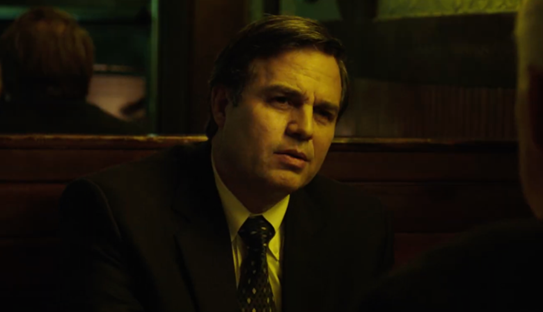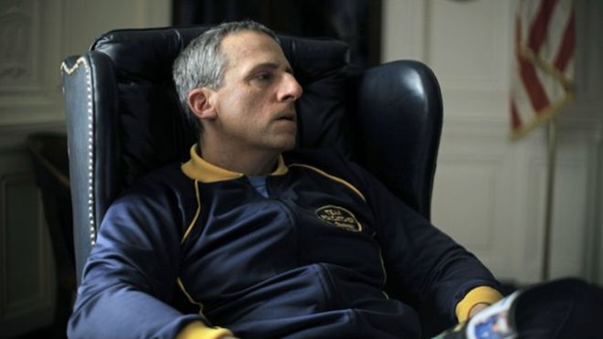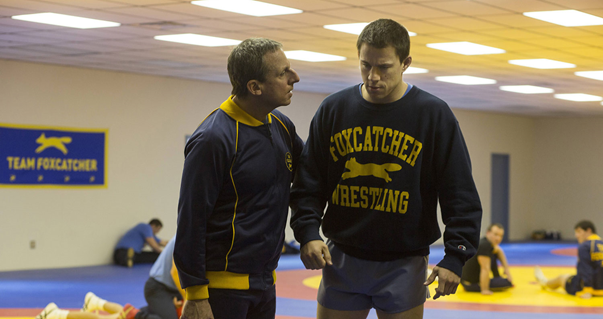It’s often said that the real conspiracies in life are incredibly boring. Our era is riddled with deep paranoia, an instinctual understanding that there is a shadowy “them” working against an ill-defined “us.” Oftentimes, these conspiracies lead to targeting specific ghoulish figures (“Bush did 9/11”), or more commonly, simply blaming everything on the Jews and calling it a day. The reality of most of the conspiracies that have made our lives irreconcilably worse is that they happened in board room meetings or during sparsely attended city council votes. The people who conspire to do us harm regularly do it in broad daylight, and they trust that enough bureaucratic paperwork and legal jargon will keep the vast majority of us from ever realizing just how terrible they truly are. This is something Todd Haynes’ new film DARK WATERS expresses incredibly well, so it’s a real shame that it’s a staggeringly dull film few people will see.
I don’t really blame Haynes, the story he found himself tasked with telling is difficult to dramatize concisely in two hours. Following corporate attorney Robert Billot, the film explores the unraveling of a massive conspiracy in which the chemical manufacturer DuPont knowingly poisoned the world with its popular product Teflon. Make no mistake, Billot is a modern hero, one of the only people willing to take on one of the world’s most powerful corporations and attempt to hold them meaningfully accountable for at least the very worst damage that they did. The way he did that, however, was mostly by reading thousands and thousands of pages of company documents and filing lawsuits, hardly the most thrilling thing to see on the big screen.

The most exciting thing about Ruffalo’s character is that he likes Mai Thais. Really, that’s it.
Everything about the movie is competently executed, but it fails to reach the levels of SPOTLIGHT or THE INSIDER, and if you’ve seen those films, I can’t blame you for feeling as if you’ve heard this song before. Corporate espionage stories are ones we all know, DuPont deceived the world and knowingly continued to push Teflon as a product, despite the fact that they knew it contained chemicals called PFOAs that could never be processed by the human body. Our entire species has at least trace amounts of PFOAs in our blood streams now, and over-exposure to them causes horrific health effects. What DuPont did is not any different than what Philip Morris did with cigarettes or ExxonMobil did with fossil fuel emissions. Given the choice between continuing to make a profit and admitting that they know their product is harmful to the human race, corporations will always cover up the evidence implicating their product; we know this even if we rarely acknowledge it. This is the defining logic of American capitalism; we’ve all become so numb to it that watching a nondescript lawyer rummage through files to prove it once again is not something most people are going to be lining up to see this holiday season.
DARK WATERS may not be particularly riveting on its own, but it makes an incredible pairing with another Ruffalo vehicle: Bennet Miller’s exceptional FOXCATCHER. The latter film tells the story of the heir of the DuPont fortune, John du Pont, an aristocratic failson who attempted to buy his way to friendship and glory by sponsoring the American 1988 Olympic wrestling team to attempt to win gold. The film is a frightening, taught portrait of what the isolation borne out of extreme wealth can do to a man’s psyche, a devastating articulation that no form of human happiness or love can be bought. John du Pont is quite literally the wealthiest man in America as the film plays out, and he cannot buy the approval of his mother nor the friendship of men he admires fiercely. His wealth serves no one.

Me, devastated that Bill Corso and Dennis Liddiard didn’t win an Oscar for best makeup.
Knowing that the wealth generated by the DuPont corporation ultimately all flowed to one pathetic, murderous man-child makes DARK WATERS a much more devastating film. It’s one thing to see a farmer huddled in a wheelchair, dying of cancer, it is quite another thing to realize this farmer was forced to suffer so that John du Pont could buy a tank to play with on his massive estate. Seeing a man permanently disfigured because his pregnant mother was forced to scrub chemical vats known to be toxic, so that John du Pont could buy his way into winning an over-50 wrestling competition, feels really, really bad. I watched DARK WATERS and FOXCATCHER back-to-back over the past two days, and I wouldn’t recommend doing that, but I would recommend seeing both.
It is outside of the scope of either film to focus on the narrative of the other, and both are strengthened by the context provided by the other. The hardest parts of DARK WATERS are when we see the townsfolk of Parkersburg, West Virginia entirely beaten down by DuPont. So many people can’t afford to imagine going after DuPont because they are the sole source of employment for most of the town. They convince themselves that DuPont are “good people” who have provided for them, despite the obvious ways the company has made them suffer. Billot eventually wins $650 million dollars for the citizens of Parkersburg, but the cancers are already in their bodies, the deformities are irreversible. It’s enraging enough on its own, but it is blood-boiling with the intimate understanding that all this suffering ultimately resulted in creating the circumstances for John du Pont’s wretched life.

The only good thing to come out of John du Pont’s life was this great movie
It is clearly not an accident that Mark Ruffalo starred in both FOXCATCHER and DARK WATERS, the actor has a personal stake in attempting to get the movie-watching public to recognize the implications of what DuPont has been allowed to do to the rest of us. Great art should force us to consider a world better than our own. Occasionally, this can be done through utopian visions of the worlds that could be, but oftentimes it is more effective to simply show us our reality for what it truly is. The perspective and scope afforded to us by film, the way it can show us the devastation of an entire town, or the torment inside one man’s soul, is entirely the reason why the medium will always be vital. We live in an era where that nobler purpose of filmmaking can often feel lost in the shuffle of worldwide audiovisual entertainment, but so long as people like Ruffalo get to still put these kinds of films out into the world for those who are willing to take the plunge, we’ll all be better off for it.
















Comments